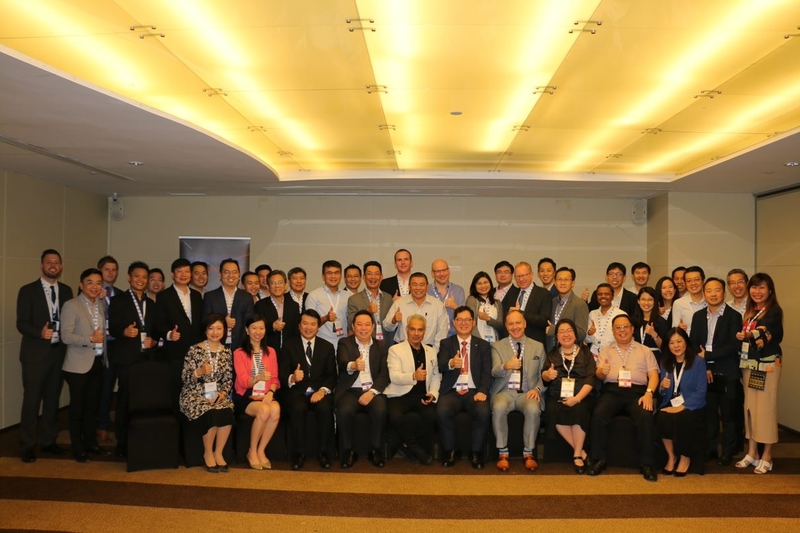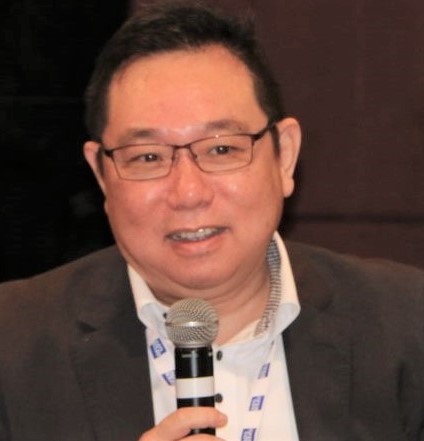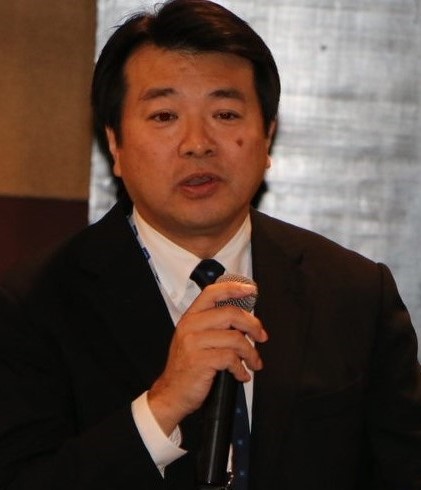
OpenGov’s Breakfast Insight – Dynamic Journey on Land, Air and Sea: Moving Forward to Become the Intelligent Transportation Industry, on November 8 was focused on the transformation efforts of the transport sector.
The discussions between key airline, transport and delivery-service providers covered the challenges and steps to be taken for achieving the smart industry goals of the sector.
Travelling has always been an integral part of the human experience. Various decades have seen major developments in modes and methods of transportation – over land, across seas, in air and even into space.

Transformation in the transport sector is currently occurring at a high level in the digital era.
With cutting edge technology, revolutionary materials and paradigm-shifting insights, developments are happening more rapidly than ever across the transport spectrum.
But the transformation process occurring from bottom-up was Mohit Sagar’s, Managing Director and Editor-in-Chief at OpenGov Asia, view of how it should take place.
The fear of technology taking up jobs does not come as a surprise. While old jobs become redundant, new technology creates far more roles, albeit different. In effect, the net-job market will not be negatively affected.
Conversely, redeployment of roles and new jobs brought about with automation of services and processes may well increase the market overall.
Devices create a heavy burden for technology. An example of this is seen amongst insurance companies asking for photo/video evidence in the event of an accident.
There is a privacy element to be considered here when using technology in such situations. Privacy policy acts such as PDPR and GDPR come into play, acting as the protective layer between an individual’s personal information and the insurance provider.
Having said that, the transportation industry is pushing forward for the digitalisation across the land, sea, and air sectors. Autonomous vehicle technology is a key technology focus.
Looking at the general landscape, technology is governed by 4 main pillars – cloud, artificial intelligence (AI), IoT, and 5G.
5G technology with all its capabilities will prove to be a real game-changer, along with AI.
OpenGov had made its technology prediction for 2019: AC/DC
- AI
- Convergence (industry 4.0)
- Data
- Cyber resilience
In the end, any transformation process requires “unlocking the bridge” and integrating data, technologies and skills together. The transport industry has to constantly push the envelope and think outside of the box to achieve its goals.
Future of Land Transport

Land Transport is growing increasingly complex for both commuters and businesses.
Transport users are having higher expectations in their user experience- comfort, control, costs, and real-time end-to-end travel advisory.
Howie Sim, Head, Healthcare and Transport Client Service Unit, NCS laid out the challenges ahead in the future of land transport:
- Shortage of human resources – there is a shortage of transport operators and personnel and an increased complexity in operations
- Transport planning – The evolution from historical data analysis to a dynamic on-demand scheduling
- Mode of transport – There is an increased complexity in regulating and integrating new forms of transport services together
- Infrastructure – Silo systems inhibit information sharing inhibiting info sharing
Looking forward in the evolving land transport systems, there are 4 transformation initiatives that are necessary to propel the industry forward – autonomous transport, intelligence, connectivity, and security-by-design.
Autonomous buses or trucks on the port side allow for ease of transportation workload. These vehicles could solve the problem of reducing per carbon capita footprint too.
Semi-autonomous driving features in vehicles are already in operation. Anti-snoozing and adaptive headlights are some of them.
There is still a lot of work to be done for going fully autonomous. The technology must be confident. This has to be ensured with constant experimentations and inspections.
Connectivity of transportation is also set to be enhanced with 5G networks and their ability to support faster mobile broadbands, mission-critical communications and massive IoT.
Security by design features, such as AI-powered cybersecurity designs and behavioural analytics, will provide for more dynamic security for the new transport systems. With the domains of IT and OT networks converging more now, there are higher security risks.
Automation to improve customer experience
Self-driving car systems, drones, air-taxis, driverless pods, and vehicles manoeuvring based on traffic conditions and crowding are some transformational modes of transport that can be anticipated for in the future.

A probably less-known fact is that Japan Airlines has started mobile e-ticketing very early on.
Takafumi Maruyama, Director, Chief Digital Strategist, Global Sales at Japan Airlines shared that Japan Airlines had launched a 2D MAP and 3D AR mode for navigating within the airport in 2011.
The map accurately shows users the direction from their current position to their gate.
Google glasses are used by staff for enabling live feed with audio communication and for providing real-time support from the head office. Engineers on-site can send information directly to the head office.
iBeacon was a test product of the airline provider which used Bluetooth Low Energy (BLE) and geofencing to display the location and information of nearby devices.
Installed at all boarding gates, the device allowed for locating staff and being aware of active duty agent location. This procedure failed, however, as the iBeacon devices were reliant on batteries.
Research ad experimentation is being done for using alternative sources of energy, such as the light in the airport, to power these devices.
The airlines also launched an NFC service in 2005 which used IC boarding passes for security checks at boarding gates.
Japan Airlines has embarked on a project, Makana-Chan, since 2016. The first version of it looked into ways of resolving passenger concerns for planning travels to Hawaii.
Version 2 came with a chatbot for gathering local tourist information on Hawaii for providing travel information and reviews of places in Hawaii.
Version 5 now looks into the use of AI robots which use voice and image recognition for communicating with people. The AI is still new, however, and in the experimentation stage.
Smartization of Incheon Airport

There is a paradigm shift in the way airports function – a change of emphasis from Hub/Gateway airport to smart airport.
So, what is defined as a Smart airport? Jung June Ahn, Vice President, Smart Airport Development Division at Incheon International Airport Corporation defined it as an airline service provider which makes the consumer experience easier, simpler and faster for visitors.
Airports becoming smart is important for ensuring better customer-centric services.
It also ensures a more punctual and efficient airline service and the ability to provide extra services to its customers. Additionally, airports get better brand equity.
All in all, the experience, profitability and sustainability of airports are enhanced with them going smart.
Incheon airport’s plans for embarking on a smart journey, goes by four main principals: simple, easy, on-time, and enjoy.
Automated passenger process is a key step forward. Features such as a self-check-in system, hybrid bag-drop system and auto-immigration procedures will highly improve customer experience.
Incheon airport has implemented an AI chatbot and a mobile app that provide 24/7 support to their passengers, sharing information such as flight status and direction-guidance.
Intelligent robot service test operations are also done. These airport guide robots will provide assistance to visitors, guiding them around. They would also be used for cleaning services.
A seamless passenger process is another focus of Incheon airport. Smart passes, a biometric security checkpoint, will move from the use passport and ticket to face and fingerprint checks for security checks.
It functions as a “check-in and security check while walking” process. The Ministry of Transport and the Ministry of Immigration will be part of regulatory implementations of this process and will look into how the use of personal data should be mandated.
All these exciting technologies all come down to one point – smart airports should provide a unique and unforgettable experience to customers, that is key.
Where is the transport industry in its transformation process now?
The transport industry faces and overall challenge in giving customers what they want, having to adapt to what their customers want.
In the face of development, there is a clear vision and the want to go ahead. But more considerations need to be taken before embarking on the process.
Having a knowledgeable and skilled pool of people is a high priority for the industry. There is also a focus on developing people and getting the workforce to be committed.
But there is still a lack of cybersecurity talent within the industry, with cybersecurity risks increasing with time. Getting clean and accessible data is another challenge.
AI, machine learning and big data are some of the most disruptive technologies in the industry.
In the airport industry, big revenues come from the retail side. With e-commerce affecting physical businesses, there is a need to look into how these disruptive technologies can be used to enhance airport business. Because in the end, passengers will always compare which is most convenient to them and will go with that. Retail has to reimagine itself.
Data for the dynamic journey ahead

Looking at the big picture, the transport industry is set towards a bright future. Jay Tuseth, General Manager, Unstructured Data Solutions, Asia Pacific Japan China at Dell Technologies said that there is sufficient data and information to make decisions surrounding the transformation process.
The more technology there is, the more data is collected.
Of course, quality of data is important too. The right team has to be there to make decisions.
The lack of awareness within organisations on cybersecurity measures has to be addressed.
Challenges, opportunities, and risks of data being hacked upon are present in this transformation process. But the growth of rate is exponential when data is used right.
Data matters – how it is leveraged, protected and taken advantage of for pushing the transport industry forward in its smart journey.
















